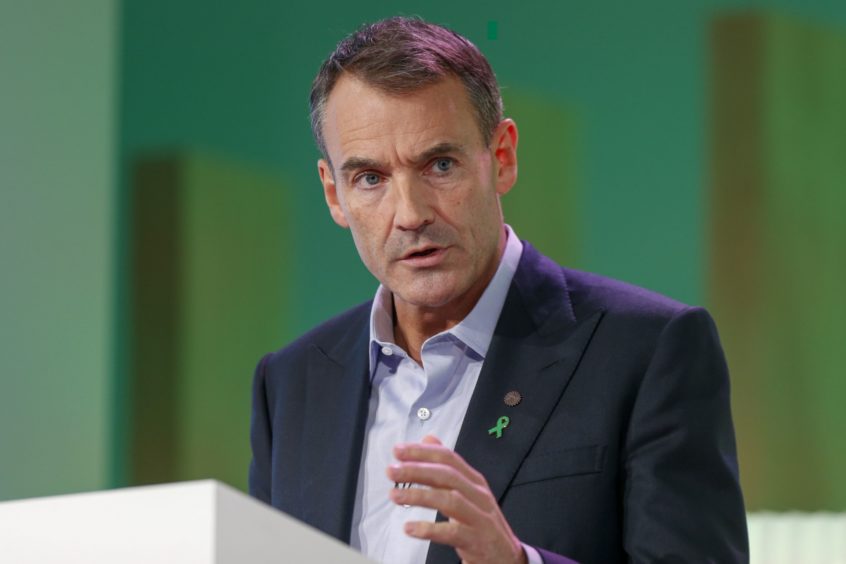
The two-day Bloomberg Sustainable Business Summit, which is underway, is focused on topics ranging from the transition to a net-zero economy to the future of sustainable investing.
Speakers include BP chief executive Bernard Looney and Nissan Motor CEO Makoto Uchida, as well as Gina McCarthy, the White House’s domestic climate adviser, and executives from financial-services companies such as JPMorgan Chase & Co., BNP Paribas SA and Allianz SE.
The Sustainable Business Summit is being organized by Bloomberg Live, a division of Bloomberg LP, the parent company of Bloomberg News. More information about the event can be found online and on the Bloomberg Terminal.
Technology companies shouldn’t just rely on carbon offsets to meet sustainability goals, said Jim Whitehurst, International Business Machines Corp.’s former president and a one-time CEO of Red Hat who now serves as a senior adviser for the company.
“Let’s not just write a check to buying offsets because we don’t know if there’s going to be enough nature-based solutions in the future,” Whitehurst said, noting that IBM has committed to not using offsets. “We need to commit to finding a way of developing the technology to get there.”
Big Blue, which set a target of achieving net-zero greenhouse gas emissions by 2030 in February, has stuck to meeting smaller, incremental goals since it set its first emissions target in 2000, a strategy Whitehurst said also increases accountability within management. “It makes it more tangible to have shorter-term goals where it’s not an aspiration it literally has to be a plan.”
In practice, IBM is developing internal and external tools using quantum computing and artificial intelligence to measure and mitigate carbon emissions. The company is working with Mercedes Benz to build more efficient batteries and advises Yard International, a crop nutrition company, to help small farmers on where and how to plant and harvest in a more environmentally friendly way by applying weather analytics.
Though the industry has made progress, Whitehurst said “there is still a ways to go” and a carbon tax would help create incentives for the industry to solidify commitments. “It’s important to set the right economic signals.”
BP had to cut its dividend, write $20 billion off its balance sheet, start a major company restructuring, and commit to cutting oil and gas production by 40% “so that we can transition,” CEO Bernard Looney said.
Shareholders are increasingly comfortable with the company’s new strategy and are “more supportive today than they would’ve been several months ago,” thanks to strong first-quarter results, he said.
The London-based oil major began share buybacks last quarter in a bid to win back investors’ support after a difficult 2020, which saw BP halve the dividend. “If oil prices stay strong, these will be material share buybacks,” the 50-year-old Irishman said, adding that there is “a good chance that oil prices will be robust and high over the coming years.”
In 2020, BP committed to ramp up investments in clean energy as part of its aim to slash emissions. The company came under fire after it committed to pay hefty premiums for the right to develop offshore wind farms off England’s coast.
BP remains confident the project will meet its minimum 8% to 10% return threshold, and as many as seven companies have shown interest in wanting to buy into it, Looney said. Its solar joint venture, Lightsource BP, has done 31 projects that also meet the company’s return targets.
Still, the company will “have to continue to invest in that hydrocarbon base” in order to fund the transition and reward investors, he said.
BP’s stake in Russian giant Rosneft PSJC “is an absolute core part of our company and our strategy,” Looney said. The relationship has attracted the ire of environmentalists and critics who point to Rosneft’s giant Vostok project in the Arctic as being at odds with BP’s climate goals.
While BP isn’t relying on carbon offsets to achieve its transition plans, the company believes it’s an important tool to get to net zero. BP will be active “in that space in a trading sense,” but an effective market needs to be developed, Looney said.
Recommended for you
